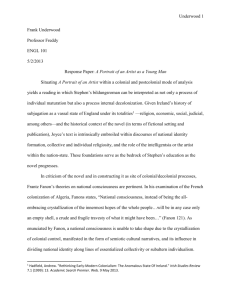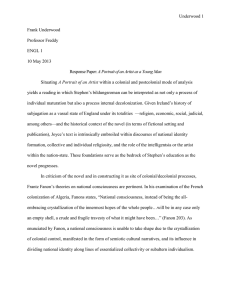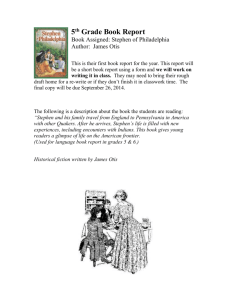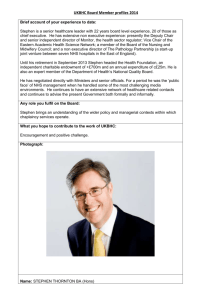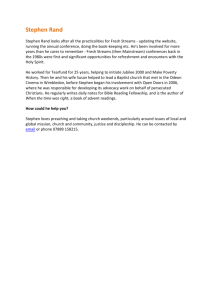MLA Unedited Example (docx)
advertisement
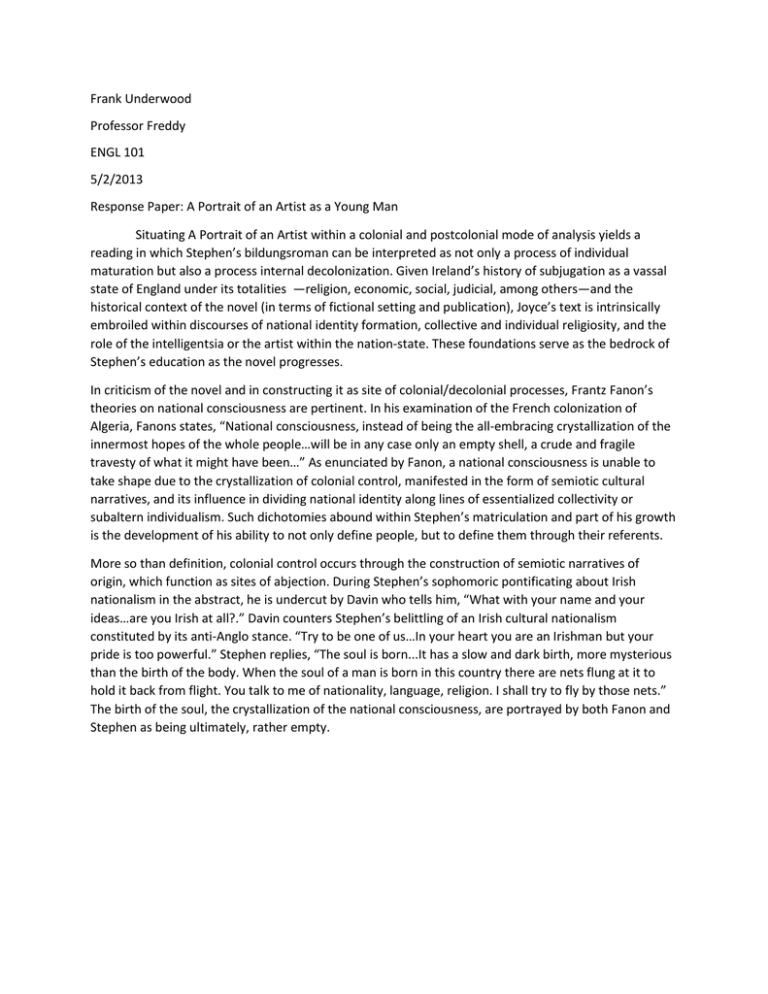
Frank Underwood Professor Freddy ENGL 101 5/2/2013 Response Paper: A Portrait of an Artist as a Young Man Situating A Portrait of an Artist within a colonial and postcolonial mode of analysis yields a reading in which Stephen’s bildungsroman can be interpreted as not only a process of individual maturation but also a process internal decolonization. Given Ireland’s history of subjugation as a vassal state of England under its totalities —religion, economic, social, judicial, among others—and the historical context of the novel (in terms of fictional setting and publication), Joyce’s text is intrinsically embroiled within discourses of national identity formation, collective and individual religiosity, and the role of the intelligentsia or the artist within the nation-state. These foundations serve as the bedrock of Stephen’s education as the novel progresses. In criticism of the novel and in constructing it as site of colonial/decolonial processes, Frantz Fanon’s theories on national consciousness are pertinent. In his examination of the French colonization of Algeria, Fanons states, “National consciousness, instead of being the all-embracing crystallization of the innermost hopes of the whole people…will be in any case only an empty shell, a crude and fragile travesty of what it might have been…” As enunciated by Fanon, a national consciousness is unable to take shape due to the crystallization of colonial control, manifested in the form of semiotic cultural narratives, and its influence in dividing national identity along lines of essentialized collectivity or subaltern individualism. Such dichotomies abound within Stephen’s matriculation and part of his growth is the development of his ability to not only define people, but to define them through their referents. More so than definition, colonial control occurs through the construction of semiotic narratives of origin, which function as sites of abjection. During Stephen’s sophomoric pontificating about Irish nationalism in the abstract, he is undercut by Davin who tells him, “What with your name and your ideas…are you Irish at all?.” Davin counters Stephen’s belittling of an Irish cultural nationalism constituted by its anti-Anglo stance. “Try to be one of us…In your heart you are an Irishman but your pride is too powerful.” Stephen replies, “The soul is born...It has a slow and dark birth, more mysterious than the birth of the body. When the soul of a man is born in this country there are nets flung at it to hold it back from flight. You talk to me of nationality, language, religion. I shall try to fly by those nets.” The birth of the soul, the crystallization of the national consciousness, are portrayed by both Fanon and Stephen as being ultimately, rather empty.
